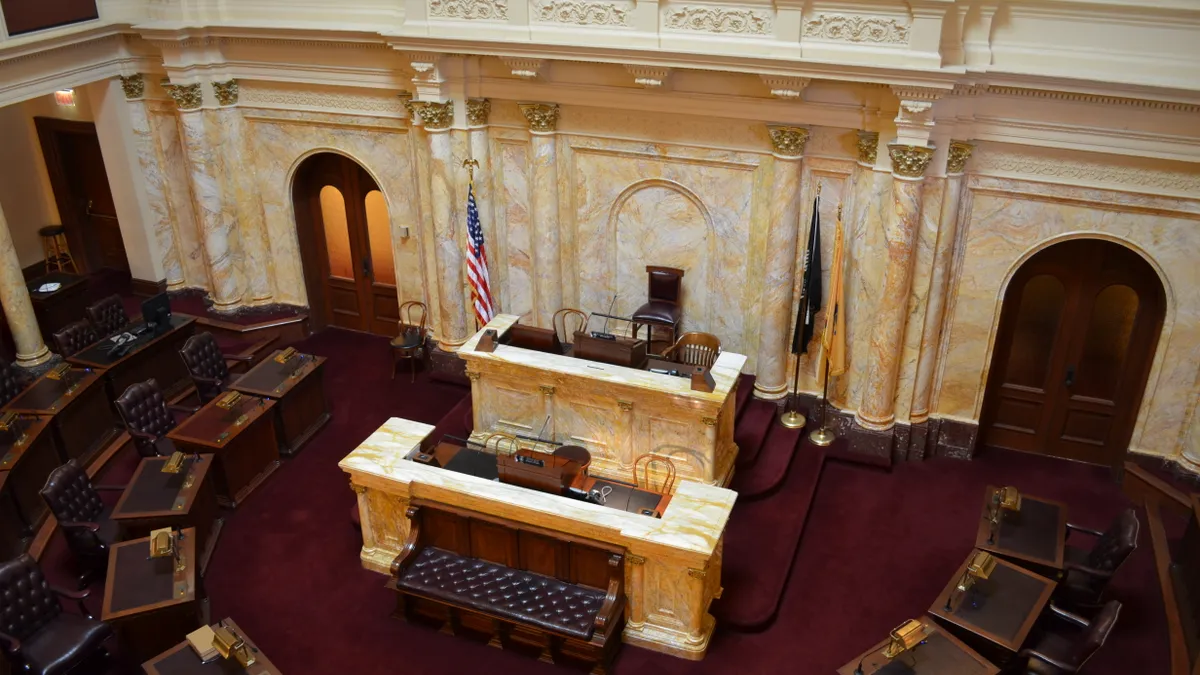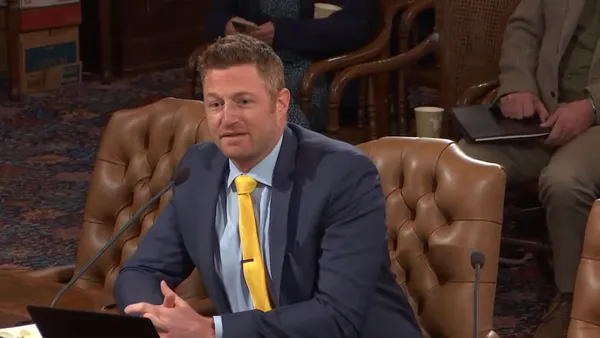Dive Brief:
- New Jersey State Sen. Bob Smith now recognizes his efforts to pass a commercial organics diversion mandate, S1206, have essentially stalled. “I’m going to have to go at it another way with them," Smith told Waste Dive, referring to a group of counties who operate landfills and have opposed the bill. “They really should be out of the food waste business."
- Smith expects to do this through two new amendments. One will tighten methane emissions regulations for landfills, with penalties for failure to meet those standards. The second will open up new funding opportunities for anaerobic digestion or other systems via the New Jersey Environmental Infrastructure Trust (EIT). “I’d like to see the EIT not finance methane recovery in a landfill. That should be stopped because it’s the wrong way to go," said Smith.
- S1206 is currently in the Senate's budget and appropriations committee, following a February vote out of the environment committee. Smith expects it will stay there for the foreseeable future given the upcoming holiday season. He now expects to have a new version ready by the spring of 2019.
Dive Insight:
Smith first introduced a version of this bill back in 2015. Its successor, S771, moved further along and prompted a range of comments from counties and industry representatives. That bill received the endorsement of the National Waste & Recycling Association's local chapter. Though because New Jersey's disposal network is largely owned by counties, the majority of which have some form of flow control, many are still opposed to the concept.
This has remained the case even with key amendments, such as reducing the coverage radius for generators near a facility from 35 miles to 25 miles and making landfills with gas capture systems eligible sites. That latter point had the additional effect of bringing Covanta into the mix, as waste-to-energy (WTE) facilities would essentially be some of the only non-compliant sites left. The New Jersey-based company signed on to a letter with two organics processors that called for an end to the landfill gas exemption.
Because language is still being drafted, Smith was unclear on whether landfills with gas capture systems would be taken back off the list of compliant sites, or whether there might be a phase-out period as other sources have indicated is a possibility. He did note there could be leeway for existing relationships between counties and generators, with some type of "grandfather" provision.
None of the other Northeast jurisdictions with similar organics diversion mandates — including Massachusetts, Vermont, Connecticut, Rhode Island or New York City — consider landfills with gas capture to be a viable destination for source-separated material. Some of the industry's largest landfill operators say gas capture technology has progressed significantly, so this should be acceptable.
Some type of financial incentives have been useful to spur processing capacity in other states; it's possible Smith's plans to open up NJEIT funding may change some minds. That has been a key source of funding for counties that built the gas capture systems in question.
There had initially been some hope that a broader plan to reduce food waste 50% by 2030, expected from New Jersey's Department of Environmental Protection this fall, could also help drive the conversation. Though the DEP recently confirmed it will be focusing on upstream prevention and reduction, not downstream processing.















